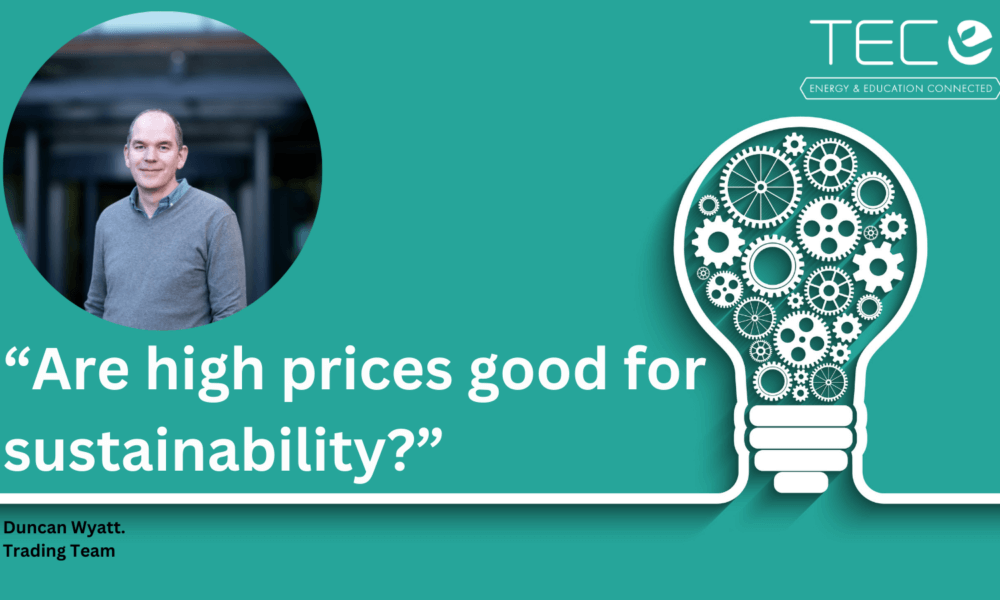News

Blog – “Are high prices good for sustainability?” by Duncan Wyatt – TEC Trading Team
TEC has been out and about over the winter, asking members the question “are high prices good for sustainability?”
The answer was broadly, “it depends!” – both on where you look, and for how long.
For those with deep enough pockets to cope with the high prices without derailing planned investment in green projects, they didn’t harm sustainability. Headwinds still exist of course, as other inflationary pressures and high interest rates challenge project economics. However, others might well have found their cost of energy crippling to the point where all future plans were put on hold simply to pay the bills.
High prices reduced demand, as for example thermostats were turned down, and with luck some of those behaviours might become habits. The mild winter certainly helped too. High prices also destroyed some industrial demand, some of which will now return, but some efficiency improvements are sure to remain.
We observed a switch in generation sources across this winter driven by price. Although the life of some high carbon emitting coal-fired power stations was temporarily extended, so were the lives of some nuclear units. Russian piped gas was broadly replaced with gas from elsewhere, although some gas demand switched to higher emission sources such as oil.
There is some evidence to suggest that in the short-term on a global scale, the energy transition will probably have been more advanced than if the price shock had not occurred. As far as sustainability is concerned, many are predicting that this short-term loss will give way to longer term gains as countries look to increase their energy independence utilising low carbon sources.
In the meantime, wholesale energy prices are still very high in historic terms, and likely to remain that way for some time to come. This means that there is plenty of scope for energy users to make meaningful savings in both sustainability and financial terms.
Members should continue to focus on reducing consumption both to reduce associated spend and emissions.



